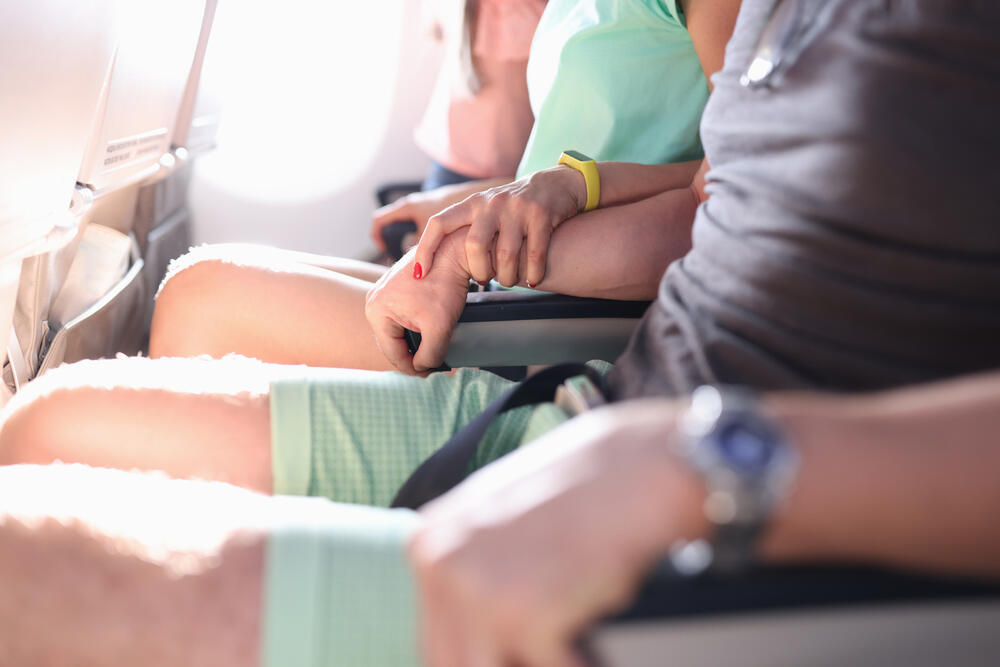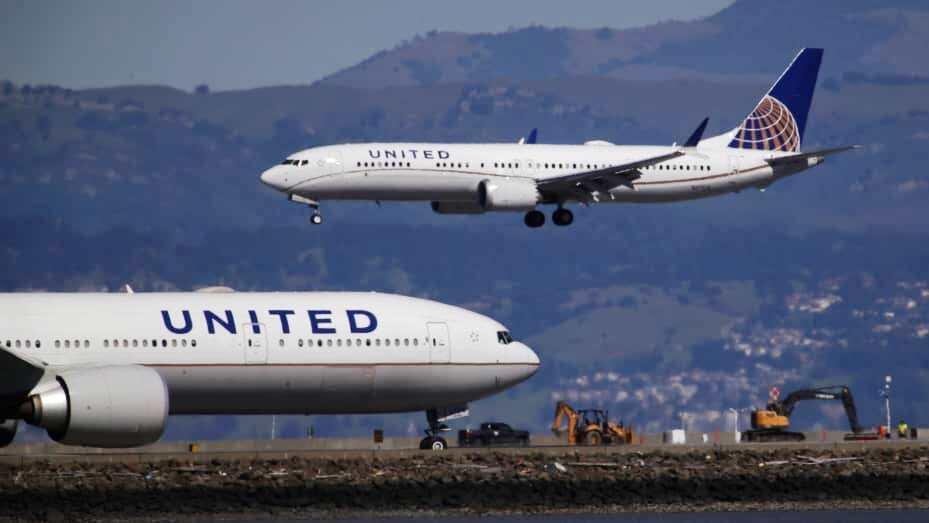Some people get excited when boarding a plane, some may just wish for their flight to pass as fast as possible, and more than a few may suffer anxiety before air travel
More stories:
Alon Pereg, who works for El Al and is a former combat pilot in the Israeli Air Force, said fear of flying is common.
In a survey he conducted, that included 1,700 participants in the U.S., 41.5% were found to be afraid of flying. Among them, 25% defined their fear as very mild, 8% said their fear was significant, and 8.5% said they experienced extreme fright. Some people avoid air travel altogether.
Fear of flying, or aviophobia is essentially derived from the broader human need for control. However, as with other cases of anxiety, our thoughts mostly inflate the risk factors, and our imagination runs wild, depicting nightmarish scenarios and pushing our fears out of proportion.
In fact, there’s a significant gap between what statistical data tell us about the likelihood of a disaster during a flight and the place this fear occupies in our minds.
"Flight is probably the safest thing I'm going to do today," Pereg says and he is supported by statistics. In the last 25 years, the number of passengers worldwide has tripled, from one billion a year to an average of 4.5 billion. In contrast, the number of fatalities has dropped. This discrepancy between the statistical risk and the perceived risk is further evidence that our imagination plays a bigger role in our perception than facts do and indicates that the human brain struggles to live with stimuli that lack meaning or interpretation. We all seek to reach what is called cognitive closure.
When the brain encounters a stimulus, it quickly tries to give it meaning based on past experiences and the knowledge we've already accumulated. When our brain is exposed to a stimulus it doesn't understand, we tend to attribute to it the most potentially dangerous interpretation, as this serves to instinctually protect us.
Therefore, in situations of uncertainty, the human imagination works overtime, generating scenarios of potential disasters, much like those we can see in the movie theater. Flying provides us with stimuli that we are not familiar with. We tend to reach the most exaggerated interpretations possible. "In reality, there is no such thing as air pockets,” Pereg explains. “In the last 50 years, there hasn't been even one plane crash due to turbulence."
Knowledge about flight and the natural phenomena that occur in it can help us identify the stimuli and interpret them correctly. Knowledge is power. Additional tools that help us are anything that engages the parasympathetic nervous system – the physiological system that calms us down: Deep and slow breathing, listening to music we love, practicing meditation – all of these can greatly help us calm the physiological stress associated with anxiety.
Pereg recommends that travelers imagine their destination, envision themselves landing comfortably, meeting their loved ones, conquering a mountaintop during a trek, or sipping their favorite cocktail on their vacation.
Shirley Yuval-Yair is a psychologist, author, and musician who runs a lifestyle podcast.




